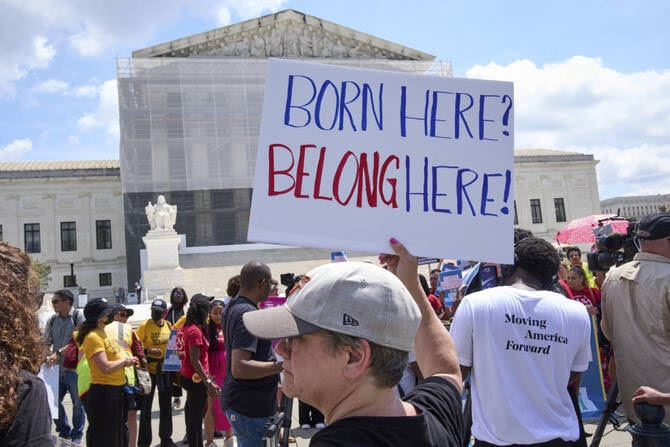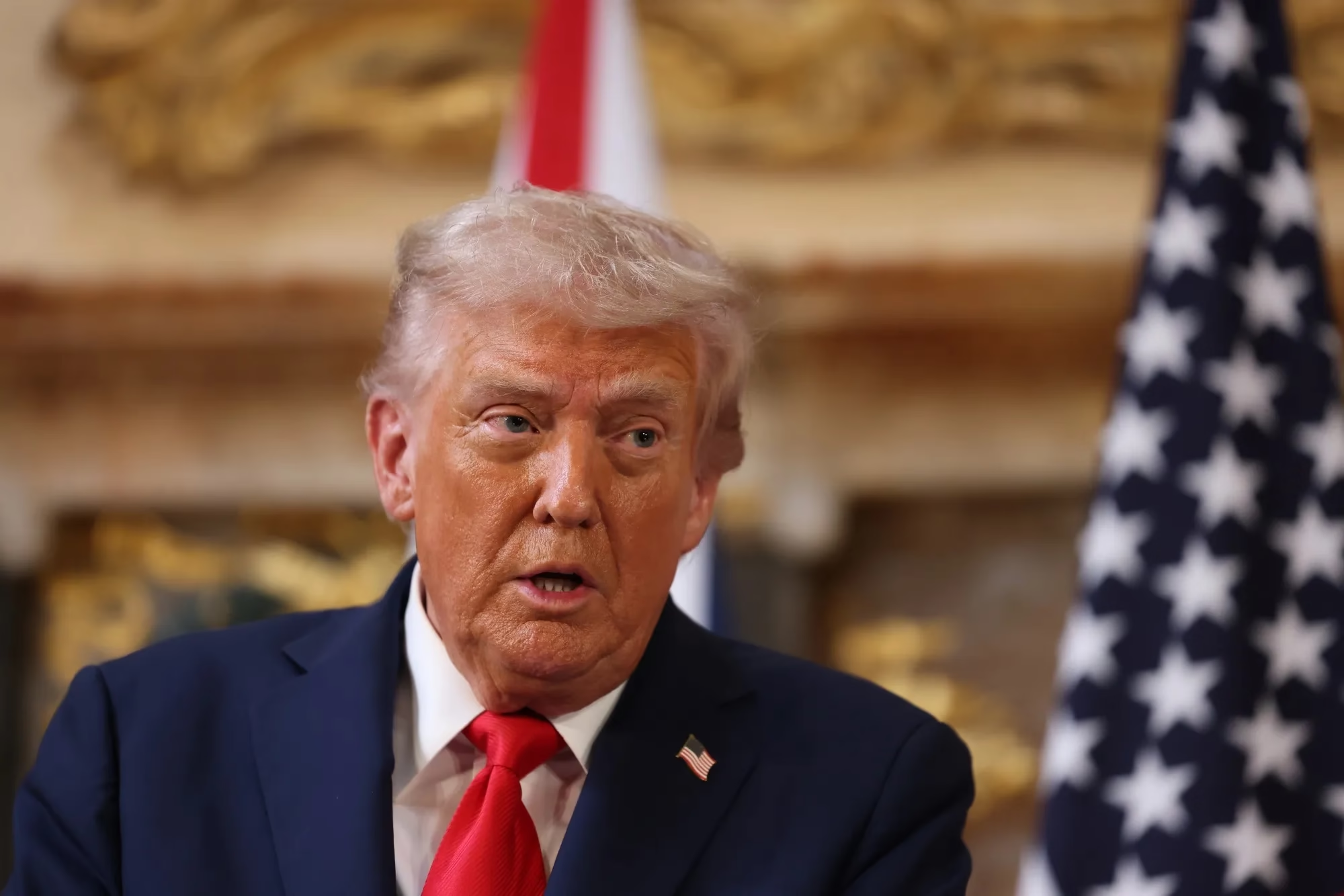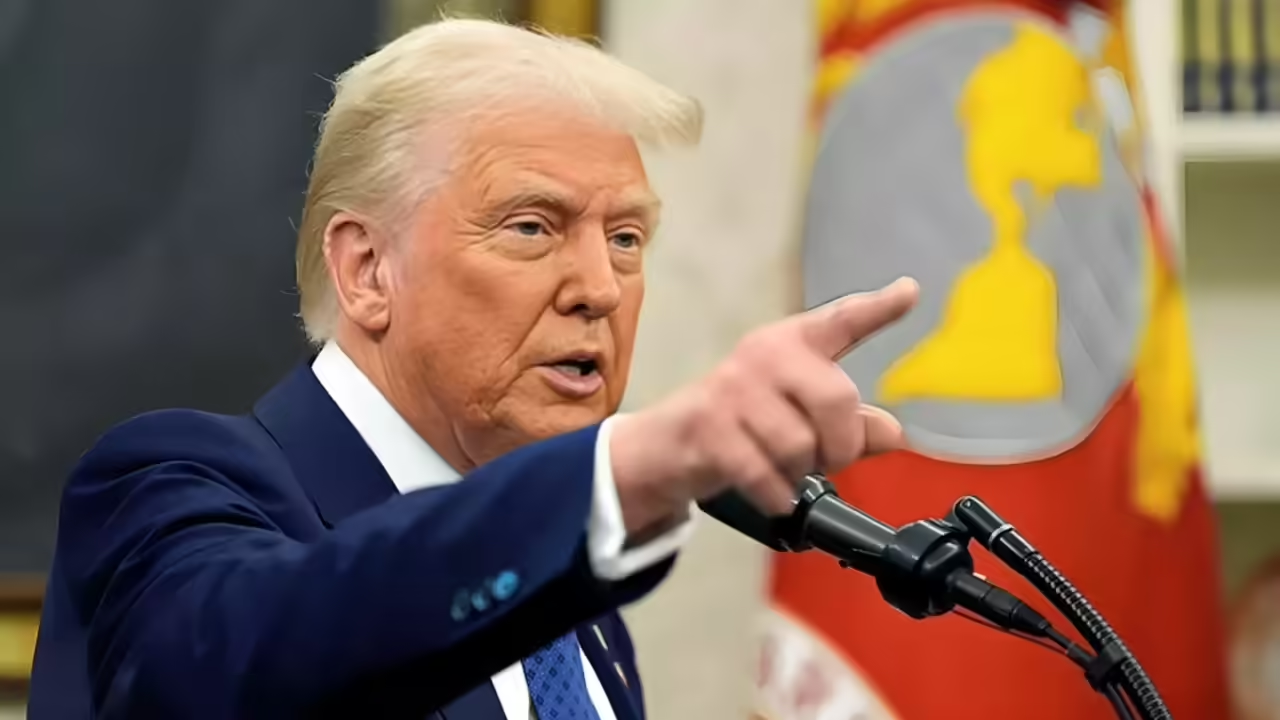WASHINGTON, — The U.S. Supreme Court on Thursday wrestled with the legality of former President Donald Trump’s controversial executive order aimed at restricting birthright citizenship—a move that could deny citizenship to over 150,000 newborns each year. The case marks the first Trump-era immigration policy argued before the justices since his return to office in January.
Conservative Majority Leans Against Universal Injunctions
The court’s six conservative justices appeared open to limiting the scope of nationwide—or “universal”—injunctions issued by federal judges in Maryland, Washington, and Massachusetts that blocked Trump’s directive. However, none signaled outright support for the executive order itself.
Some liberal justices, including Sonia Sotomayor and Elena Kagan, raised constitutional concerns about the order, arguing that it could violate the 14th Amendment and upend longstanding precedent on citizenship.
Trump’s Order and Its Potential Impact
Signed on January 20, the day Trump was inaugurated for his second term, the executive order directs federal agencies not to recognize the citizenship of U.S.-born children unless at least one parent is a U.S. citizen or lawful permanent resident. If upheld, the order could render thousands of children stateless and ineligible for key public services.
Justice Sotomayor warned the policy would create a significant humanitarian and legal issue, stating, “We are talking about thousands of children who are going to be born without citizenship papers.”
Plaintiffs Argue Constitutional Violation
The directive is being challenged by 22 Democratic state attorneys general, immigrant advocacy groups, and individual plaintiffs. They argue that it violates the 14th Amendment, which has long been interpreted to confer citizenship to anyone born on U.S. soil.
Attorney Kelsi Corkran, representing the plaintiffs, urged the court to address the constitutionality of the directive directly. “The government is asking the court to ignore its own precedents and 100 years of executive branch practice,” she said.
Government Focuses on Limiting Judicial Power
U.S. Solicitor General D. John Sauer argued the administration’s primary case was against universal injunctions. Sauer criticized the growing trend of such injunctions, calling it a “pathology” and urging the justices to rule narrowly, allowing the order to proceed even without evaluating its legality.
The government suggested that claims for broad relief should be funneled through class-action lawsuits, not universal injunctions.
Justices Question Practical and Legal Implications
Despite some conservatives’ interest in narrowing judicial authority, several justices from both ideological wings expressed concern about ruling without a thorough review of the order’s legality.
Justice Samuel Alito questioned whether the court should make a decision without full briefing on the birthright citizenship issue, while Justice Brett Kavanaugh raised practical concerns, asking, “What do hospitals do with a newborn? What do states do with a newborn?”
Justice Amy Coney Barrett echoed the need for an efficient resolution, questioning the practicality of waiting years for a final Supreme Court ruling if nationwide injunctions are restricted.
Legal History and Precedent in Focus
Opponents of the directive cite the 1898 Supreme Court ruling in United States v. Wong Kim Ark, which affirmed citizenship for U.S.-born children of non-citizen parents. The Trump administration contends the ruling only applies to those whose parents had a permanent residence in the U.S.
The plaintiffs argue the order contradicts both this precedent and the original intent of the 14th Amendment, ratified in 1868 to guarantee citizenship to formerly enslaved people.
Uncertainty Over Court’s Next Steps
The justices may request additional briefing on the merits of the order, potentially delaying a final decision. Meanwhile, the administration is asking to limit the injunctions to the 22 states involved in the lawsuit, which would allow the policy to take effect in the other 28 states.
As the court deliberates, the legal and political stakes remain high, with potentially profound implications for immigration, federal court power, and constitutional interpretation in the United States.



